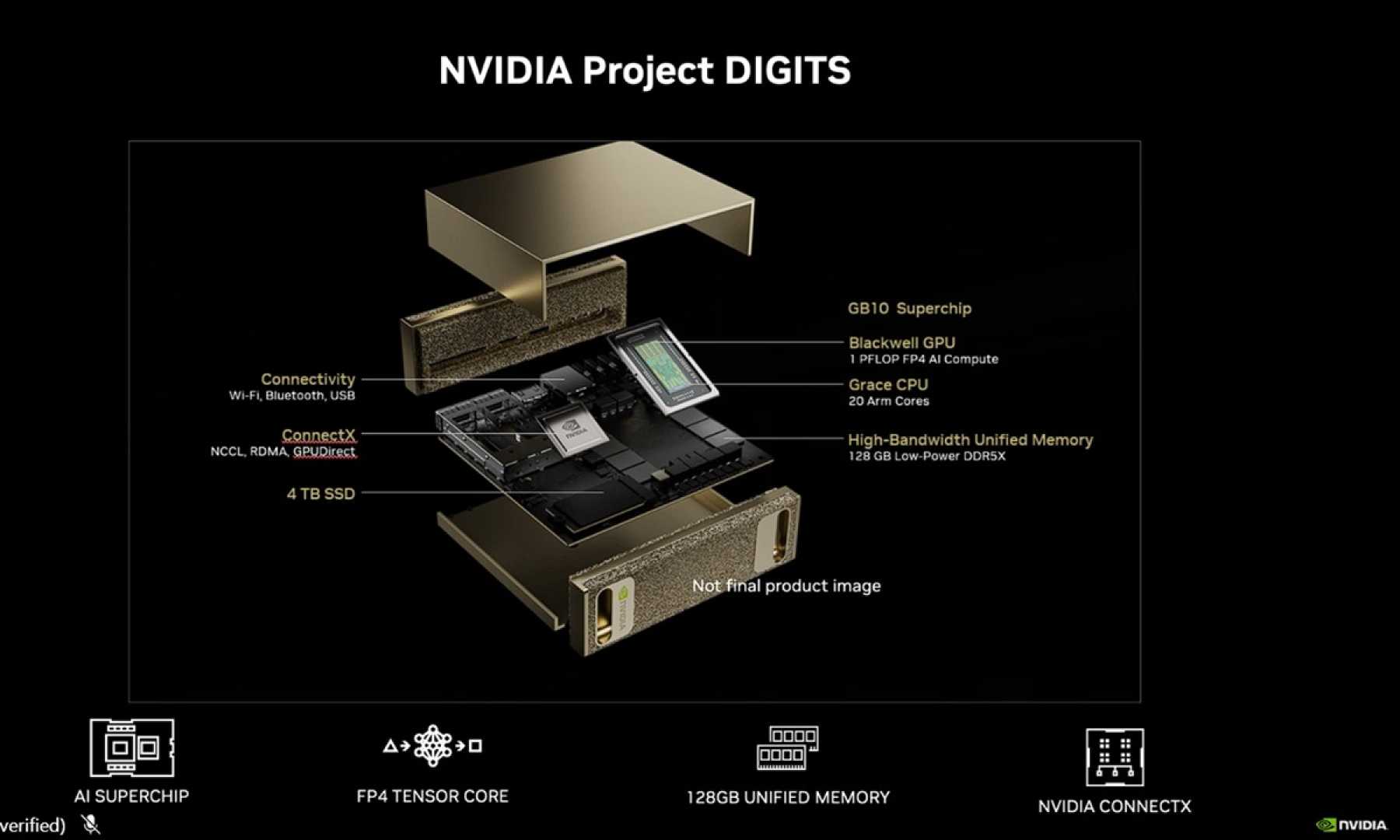Sports
NVIDIA Unveils Project DIGITS: World’s Smallest AI Supercomputer

LAS VEGAS, Nevada—NVIDIA has introduced Project DIGITS, a groundbreaking personal AI supercomputer designed to bring advanced AI capabilities to researchers, data scientists, and students. Unveiled at CES 2025, the system features the new NVIDIA GB10 Grace Blackwell Superchip, delivering a petaflop of AI computing performance in a compact, desktop-sized device. Starting at $3,000, Project DIGITS is set to launch in May 2025.
The GB10 Superchip, based on NVIDIA’s Grace Blackwell architecture, offers up to 1 petaflop of AI performance at FP4 precision. It combines NVIDIA’s latest-generation CUDA cores and fifth-generation Tensor Cores with a high-performance Grace CPU, featuring 20 Arm-based cores. MediaTek, a leader in Arm-based SoC designs, collaborated on the GB10 to optimize power efficiency and connectivity.
Each Project DIGITS system includes 128GB of unified memory and up to 4TB of NVMe storage, enabling users to run AI models with up to 200 billion parameters. For more demanding tasks, two systems can be linked to handle models with up to 405 billion parameters. NVIDIA CEO Jensen Huang emphasized the system’s potential, stating, “Placing an AI supercomputer on the desks of every data scientist, AI researcher, and student empowers them to engage and shape the age of AI.”
Project DIGITS runs on Linux-based NVIDIA DGX OS and supports popular AI frameworks like PyTorch, Python, and Jupyter notebooks. Users can access NVIDIA’s extensive AI software library, including development kits, orchestration tools, and pre-trained models through the NVIDIA NGC catalog. The system also supports NVIDIA NeMo for fine-tuning models and NVIDIA RAPIDS for accelerating data science workflows.
NVIDIA’s Project DIGITS represents a significant step in democratizing AI development, allowing users to prototype and test models locally before deploying them on cloud or data center infrastructure. The system’s compact design and power efficiency make it accessible to a wide range of users, from individual researchers to small enterprises.












